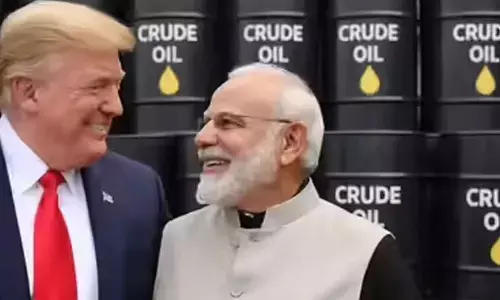Govt cracking down on firms making false eco-friendly claims on products
Share :

The Department of Consumer Affairs is preparing new guidelines to protect consumers from ads making fake environmental claims about products by using terms such as "eco-friendly", "green", "eco-consciousness", "good for the planet" without providing verifiable evidence.
New Delhi: The Department of Consumer Affairs is preparing new guidelines to protect consumers from ads making fake environmental claims about products by using terms such as "eco-friendly", "green", "eco-consciousness", "good for the planet" without providing verifiable evidence.
Secretary, Consumer Affairs and Central Consumer Protection Authority's Chief Commissioner, Rohit Kumar Singh said on Thursday that the consumer’s interest is of paramount importance while chairing the 3rd meeting of the committee to prepare Guidelines for "Protection of consumer against Greenwashing".
He highlighted the need for clarity, specifically in addressing certain aspects related to advertisements of environmental claims, and that the department firmly believes in safeguarding the rights of consumers and ensuring no false or misleading advertisement is made of any goods or services.
The draft guidelines were discussed with committee members at the meeting.
The various disclosures that will be required to be made by a company making green claims are that all environmental claims shall be accurate and disclose all material information either in the relevant advertisement or communication or by inserting a QR Code, or any such technology including web link, which will be linked to relevant information.
Any person making an environment related claim should specify whether it refers to the good, manufacturing process, packaging, manner of use of the good or its disposal; or service or the process of rendering the service.
All environmental claims shall be backed by verifiable evidence, and while making disclosures in relation to environmental claims, data from research shall not be cherry picked to highlight only favourable observations while obscuring others that are unfavourable.
Comparative environmental claims that compare one product or service to another must be based on verifiable and relevant data that is disclosed to the consumers, and specific environmental claims must be supported by credible certification, reliable scientific evidence, and independent third-party verification to maintain their authenticity.
The draft guidelines also stipulate that aspirational or futuristic environmental claims need to be made with various disclosures.
The draft guidelines provide a guidance note for environmental claims with appropriate examples to provide help and guidance to industry.
Besides, it has also been clarified that penalty for misleading advertisement for 'greenwashing' by a company will be governed as per the Consumer Protection Act, 2019 and the guidelines are just in the nature of clarification to the stakeholders.














